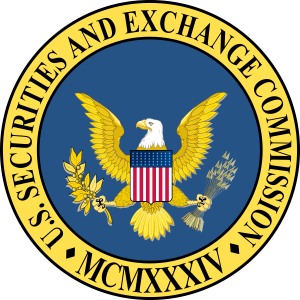
Corporate Governance

ISS Publishes Guidance on Director Compensation (and Other Qualification) Bylaws
In the latest instance of proxy advisors establishing a governance standard without offering evidence that it will improve corporate governance or corporate performance, ISS has adopted a new policy position that appears designed to chill board efforts to protect against …
Wachtell Update on the Halliburton Fraud-on-the-Market Case

Agencies Approve Volcker Rule Revision as an Interim Final Rule

Increasing Transparency, Consistency, and Fairness in Pre-Trial Bargaining Under the Foreign Corrupt Practices Act
The following comes to us from Peter Reilly, Associate Professor of Law, Texas A&M School of Law.
Wal-Mart is one of the wealthiest and most powerful companies in the world. And billionaire gambling magnate Sheldon Adelson is one of the …

Shadow Banking: The Regulatory Landscape at the Dawn of 2014
In the wake of the 2008 crisis, it soon became apparent that the fault lines of the global financial system extended far beyond the regulated banking sector to the less regulated “shadow banking” sector. Nonbank financial entities including (but not …

Shareholder Wealth Maximization and its Implementation under Corporate Law
The following comes to us from Bernard S. Sharfman, Visiting Assistant Professor of Law at Case Western Reserve University School of Law.
When should courts participate in determining if a corporate decision maximizes shareholder wealth? That is the question at …

Recalculating “Loss” in Securities Fraud
The following comes to us from Scotland M. Duncan, an attorney at Jones Day in Pittsburgh, PA.*
It is axiomatic that calculating the amount of loss within securities fraud cases is essential to criminal sentencing. Until about a year …

SEC Releases Report on Regulation S-K’s Disclosure Requirements
On December 20, 2013, the Securities and Exchange Commission released a report, required by Section 108 of the JOBS Act, that reviews the disclosure requirements in Regulation S-K. The report summarizes the Commission’s prior initiatives, reviews the current disclosure requirements, …

SEC Issues Proposed Regulation A+

Conflicts of Interest and Competition in the Proxy Advisory Industry
The following comes to us from Tao Li, Assistant Professor, Warwick Business School
Proxy advisors, private firms that help investors decide how to vote their shares, play an extremely powerful role in shaping corporate governance. As institutional investors vote billions …
Morrison Foerster’s Regulatory Reform Glossary
On Monday, December 16th, Morrison Foerster released what may be a first-of-its-kind regulatory reform glossary. The glossary, which is not comprehensive, is intended to serve as a helpful summary of neologisms and other acronyms (e.g., SIFI), nicknames (e.g., repo), and …

Hedge Fund Advisers’ Systemic Risk Disclosures in Bankruptcy
Hedge funds’ distressed and default debt investments in the United States have increased dramatically in the last two decades (from around $70 billion in 1998 to around $867 billion in 2007) and hedge funds with strategies that focus on distressed …

How Financial Institutions May Benefit from Changes to the Rule Against Perpetuities
In the late 1980s, large financial institutions successfully marketed a new exemption in the tax code authorizing the perpetual insulation of wealth from federal transfer taxes. Specifically, the 1986 tax code reforms included an exemption from the federal Generation Skipping …

Federal Agencies Adopt the Long-Awaited Volcker Rule

Delaware Court Confirms High Bar To Escape Deal
The following post is based on a memo originally published by Cadwalader, Wickersham & Taft LLP on November 14, 2013 which can be found here.
Two recent Delaware Chancery Court opinions, issued on October 25 and November 9, 2013, …

The Underappreciated Importance of Personal Jurisdiction in Delaware’s Success
In an article to be published this Spring in the DePaul Law Review, I argue that Delaware’s position as the center of corporate litigation has been rooted in two unique but unconstitutional approaches to personal jurisdiction over fiduciaries. Until Delaware …

Independent Directors as a Handy Political Tool
Boards of public corporations have more independent directors than ever before. Sixty percent of boards of S&P 500 companies are not only majority independent, but have a single insider on the board: the CEO. While Jamie Dimon is still CEO …

A Corporate Culture Channel: How Increased Shareholder Governance Reduces Firm Value
The following comes to us from Jillian Popadak, an applied economics doctoral student in the Business Economics and Public Policy Department at Wharton, University of Pennsylvania.
Corporate governance affects firm value, capital productivity and economic growth. Given its economic importance, …
Wachtell Lipton on ISS Addressing Dissident Director Compensation Bylaw
ISS Proxy Advisory Services recently recommended that shareholders of a small cap bank holding company, Provident Financial Holdings, Inc., withhold their votes from the three director candidates standing for reelection to the company’s staggered board (all of whom serve on …
 Sky Blog
Sky Blog